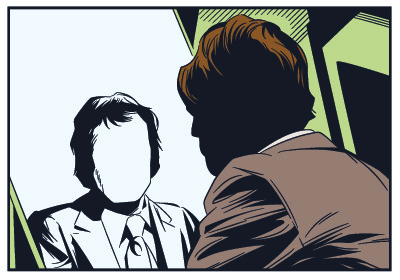 The year 2020 will long be remembered as a year of great challenges for societies around the world. These challenges have been focused primarily (though not exclusively) on: 1) the physical, psychological and economic devastation caused by the Covid-19 pandemic; and 2) a multitude of human tragedies that have exposed the failure of American and other societies to adequately address centuries of systemic racism.
The year 2020 will long be remembered as a year of great challenges for societies around the world. These challenges have been focused primarily (though not exclusively) on: 1) the physical, psychological and economic devastation caused by the Covid-19 pandemic; and 2) a multitude of human tragedies that have exposed the failure of American and other societies to adequately address centuries of systemic racism.
Yet, even considering all the suffering, we now have an unprecedented opportunity for introspection. Our collective responses to these challenges reveal a great deal about the societies in which we live, some of which may be difficult to accept. The responses of our business community reveal a great deal about the businesses that function within those societies, along with their leaders. Their ethics have been fully uncovered by the extreme pressures of the day, presenting an extraordinary opportunity for learning and reflection.
A rough philosophical construct is useful in analyzing our actions (and inactions). Specifically, we can start with the concept of “applied ethics,” the study of how we formulate and apply moral considerations in the context of real-world surroundings. To do this, we must present ourselves with situational moral questions and analyze our responses.
When the economic pressures and uncertainties of the Covid-19 pandemic intensified in March and April, how did we react? More specifically, how did we answer the hard questions that follow?
• Did we meaningfully attempt to balance the interests of all stakeholders, including not only our owners but also our employees, customers and communities?
• Did we prioritize people’s livelihoods over our own short-term profits (as distinct from our survival)?
• Did we avoid using the crisis to take advantage of customers, employees or others?
• Did we decline scarce government assistance for which we legally may have qualified but which we may not have needed so that it could go to others with greater need?
And how did we respond to the string of racially connected killings that became the latest examples of how our society has failed to address systemic racism?
• Did we take a clear and timely stand, internally and externally?
• Did we avoid hiding within their own status quo to join the broader movement toward addressing the root problems?
• Did we make an honest assessment of our own past participation in our flawed system?
• Did we seize the opportunity to take intentional steps to address our own limitations on diversity and inclusiveness?
Every CEO must ask these questions and analyze their honest answers to understand themselves better. “Normative ethics,” which attempts to identify the conduct that all “rational” people might deem as moral, likely requires an affirmative answer to each of the above questions. Thus, if your company can honestly answer yes to each question, then it generally conforms to ethical norms, at least in this context.
Answering “yes”, however, does not end the ethical inquiry. Why your company and its leaders answered this way can be equally instructive. The underpinnings of this inquiry fall into one of three main approaches:
1. If your company’s decisions were based on an assessment of which actions result in the greatest happiness and well-being for all, then, philosophically speaking, your company and its leadership may have a “utilitarian” or “consequentialist” approach to ethical decision making. They likely make ethical decisions based on how they can maximize the impact of those decisions, without focusing exclusively inward.
2. If your company behaved consistently with its sense of formal or informal duties as a part of society, then its approach was based on “deontological ethics.” Your company and its leaders probably believe that certain ethical decisions are required by a set of moral rules.
3. If your company behaved in a way that it perceives as inherently virtuous, then its behavior was sourced in “virtue ethics.” Such a company and its leaders are likely motivated by the idea of maintaining an overall moral character (as contrasted with merely following an ethical code).
Again, our behavior and the thinking behind it reveal a great deal about our ethics. Can the same be said about all those “statements of core values” posted on our websites? You know, the ones that usually mention “respect,” “integrity,” and the like? Philosophically, those statements are intended to be a form of “descriptive ethics,” which describe what a group of people think is morally right. And here again is a learning opportunity. For some businesses, honesty requires a negative answer to one or more of the above questions, and they, too, must reflect on their behavior. In fact, they must reflect on whether their stated core values (if any) even reflect their actual values.
The events of this year have exposed our values for what they truly are. Accept that reality or change it, but be honest. As the ancient Greek aphorism goes, “know thyself.” The opportunity to do so has never been greater.

Chief Executive Group exists to improve the performance of U.S. CEOs, senior executives and public-company directors, helping you grow your companies, build your communities and strengthen society. Learn more at chiefexecutivegroup.com.
0

1:00 - 5:00 pm
Over 70% of Executives Surveyed Agree: Many Strategic Planning Efforts Lack Systematic Approach Tips for Enhancing Your Strategic Planning Process
Executives expressed frustration with their current strategic planning process. Issues include:
Steve Rutan and Denise Harrison have put together an afternoon workshop that will provide the tools you need to address these concerns. They have worked with hundreds of executives to develop a systematic approach that will enable your team to make better decisions during strategic planning. Steve and Denise will walk you through exercises for prioritizing your lists and steps that will reset and reinvigorate your process. This will be a hands-on workshop that will enable you to think about your business as you use the tools that are being presented. If you are ready for a Strategic Planning tune-up, select this workshop in your registration form. The additional fee of $695 will be added to your total.

2:00 - 5:00 pm
Female leaders face the same issues all leaders do, but they often face additional challenges too. In this peer session, we will facilitate a discussion of best practices and how to overcome common barriers to help women leaders be more effective within and outside their organizations.
Limited space available.

10:30 - 5:00 pm
General’s Retreat at Hermitage Golf Course
Sponsored by UBS
General’s Retreat, built in 1986 with architect Gary Roger Baird, has been voted the “Best Golf Course in Nashville” and is a “must play” when visiting the Nashville, Tennessee area. With the beautiful setting along the Cumberland River, golfers of all capabilities will thoroughly enjoy the golf, scenery and hospitality.
The golf outing fee includes transportation to and from the hotel, greens/cart fees, use of practice facilities, and boxed lunch. The bus will leave the hotel at 10:30 am for a noon shotgun start and return to the hotel after the cocktail reception following the completion of the round.